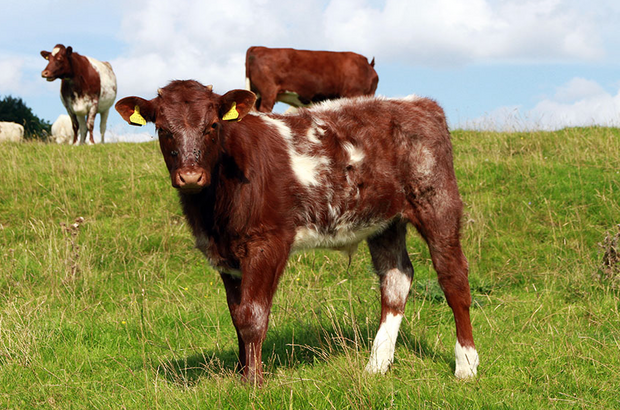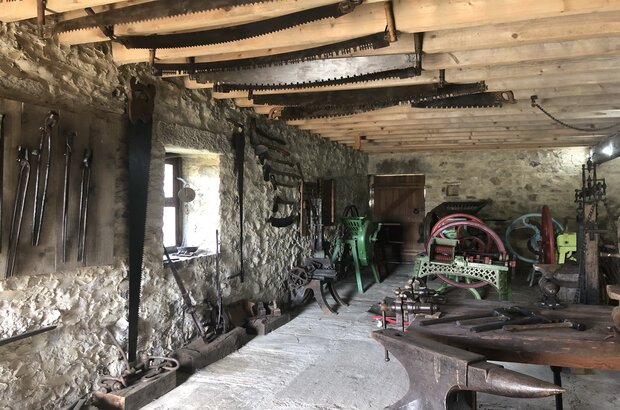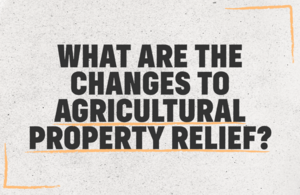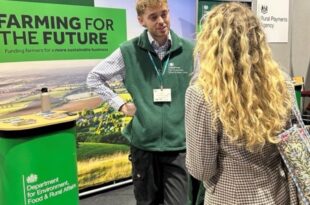
I'm pleased to share a Farming in Protected Landscapes (FiPL) milestone: we have funded the 3,000th project through the programme!
In this post, I'll shine a light on this milestone project, reflect on 2.5 years of FiPL and share details of a new series on the blog.
Background
When the FiPL programme launched in June 2021, it aspired to recognise the unique features of England's protected landscapes by supporting activities that:
- help nature recovery
- mitigate the impacts of climate change
- provide opportunities for people to discover, enjoy and understand the landscape and its cultural heritage
- protect or improve the quality and character of the landscape.
3,000 projects later, farmers and land managers working in collaboration with FiPL officers, are fulfilling these aspirations.
FiPL projects have:
- created and improved more than 70,000 hectares (ha) of habitat for biodiversity
- planted more than 100 miles of hedgerow and more than 100,000 trees
- conserved or enhanced 300 historic features, buildings and structures as well as restoring 8 miles of dry-stone walling.
Additionally, FiPL projects have enabled greater public access to green spaces with the creation or improvement of over 90 miles of permissive paths and funded more than 2,000 educational visits and open days.
The bespoke and flexible nature of projects and dedicated support of FiPL officers has helped empower farmers and land managers to design and develop projects that align with their interests and fit their geographical context.
This has helped create large demand for FiPL, which was extended with an additional £40 million funding for an additional year until March 2025.
The 3,000th project
The 3,000th project fantastically demonstrates how collaboration between farmers, FiPL advisers and other organisations can achieve a range of brilliant outcomes.
Gam Farm is located just north of the quaint village of Grassington in the Yorkshire Dales. Nestled between rolling moors and framed by dry stone walls, the farm is home to many varieties of rare breeds which include Whitefaced Woodland sheep, Bagot goats and Northern Dairy Shorthorn cattle – some of the rarest native breeds in the UK.
The farm works with the Rare Breeds Survival Trust to host workshops, open days and demonstrations with the purpose of increasing knowledge and awareness of rare breeds – both amongst farmers and the public alike. The farm also hosts visits through the Open Farm Sunday Initiative.

Farm Manager Helen Wray is using FiPL funding to further her passion: providing more opportunities for the public to access the farm.
In planning their FiPL project, Gam Farm worked alongside Access the Dales, a non-profit organisation devoted to improving access to the outdoors.
With FiPL funding, and with the help of volunteers, the farm is using permeable materials to install a wheelchair access track, an accessible car park, as well as funding a Paratrekker wheelchair for public use.
To further engage visitors with farming, they are creating and installing educational interpretation panels and signage, including in their farm machinery museum. The programme is also funding 5 educational visits for groups of young people to visit the farm as well as website design and promotional materials to help promote the project to schools.
Finally, Gam Farm is using FiPL funding to both increase biodiversity connectivity and preserve heritage through the creation of new hedgerows and restoration of dry-stone walls.
The project should be complete this summer.
A new FiPL spotlight series
Hopefully you have enjoyed reading about this project. If you have, I'm pleased to report that there is more to come!
In a recent post, I shared the results of the FiPL interim evaluation and a reader asked if we could share examples of projects.
We thought this was a great idea and so we're launching a new spotlight series.
Teams from across England will showcase their projects and we'll publish one every month, bringing their brilliant work to life.
Look out for the first spotlight post next month. Subscribe to the Farming blog for an e-mail notification whenever a post is published.





 The
The 
6 comments
Comment by Karyn Murby posted on
Are there any Protected landscapes in East Yorkshire?
Thank you
Comment by Mark Ward posted on
Hi Karyn,
Thanks for getting in touch. There are no protected landscapes in East Yorkshire, but the Howardian Hills and North York Moors are relatively close by.
Here's more information abut FiPL and the Howardian Hills: https://www.howardianhills.org.uk/farming-in-protected-landscapes/
Here's more information about FiPL and the North York Moors:
https://www.northyorkmoors.org.uk/farming-and-land-management/farming-in-protected-landscapes
Best wishes,
Mark
Comment by Mike Mellor posted on
Hi I was really interested in reading about Gam Farm’s use of the FiPL scheme. I live in NE Hampshire so it’s too far to visit easily. Do you have a way so I can find similar projects closer to home?
Comment by Mark Ward posted on
Hi Mike,
Thanks for reading the post and for getting in touch!
Every protected landscape organisation publishes the projects they approve on their websites.
There are 3 protected landscapes in Hampshire, for which you can find the lists of approved FiPL projects below:
- New Forest National Park:
https://www.newforestnpa.gov.uk/conservation/protecting-nature/farming-in-protected-landscapes/farming-in-protected-landscapes-2/transparency-of-funding/
- South Downs National Park: https://www.newforestnpa.gov.uk/conservation/protecting-nature/farming-in-protected-landscapes/case-studies/
- North Wessex Downs:
https://www.northwessexdowns.org.uk/farming/farming-in-protected-landscapes/projects-funded/
FiPL funds a range of projects and whilst some provide access to the public, others may not. So it's worth reaching out to the relevant protected landscape organisation to find out which projects you can visit.
Best wishes,
Mark
Comment by Mike Mellor posted on
Thank you🙏
Comment by Russell Hartwell posted on
Hi Mark,
Excellent article, thank you. FiPL has supported some excellent projects in our Chilterns Region so we know it's a great initiative. The burning question here is will FiPL be extended beyond it's current scheduled end of March 2025, which is coming all too soon! Maybe tricky to answer in an election year but FiPL is a great scheme and we'd be sad to see it end.
Many thanks,
Russell